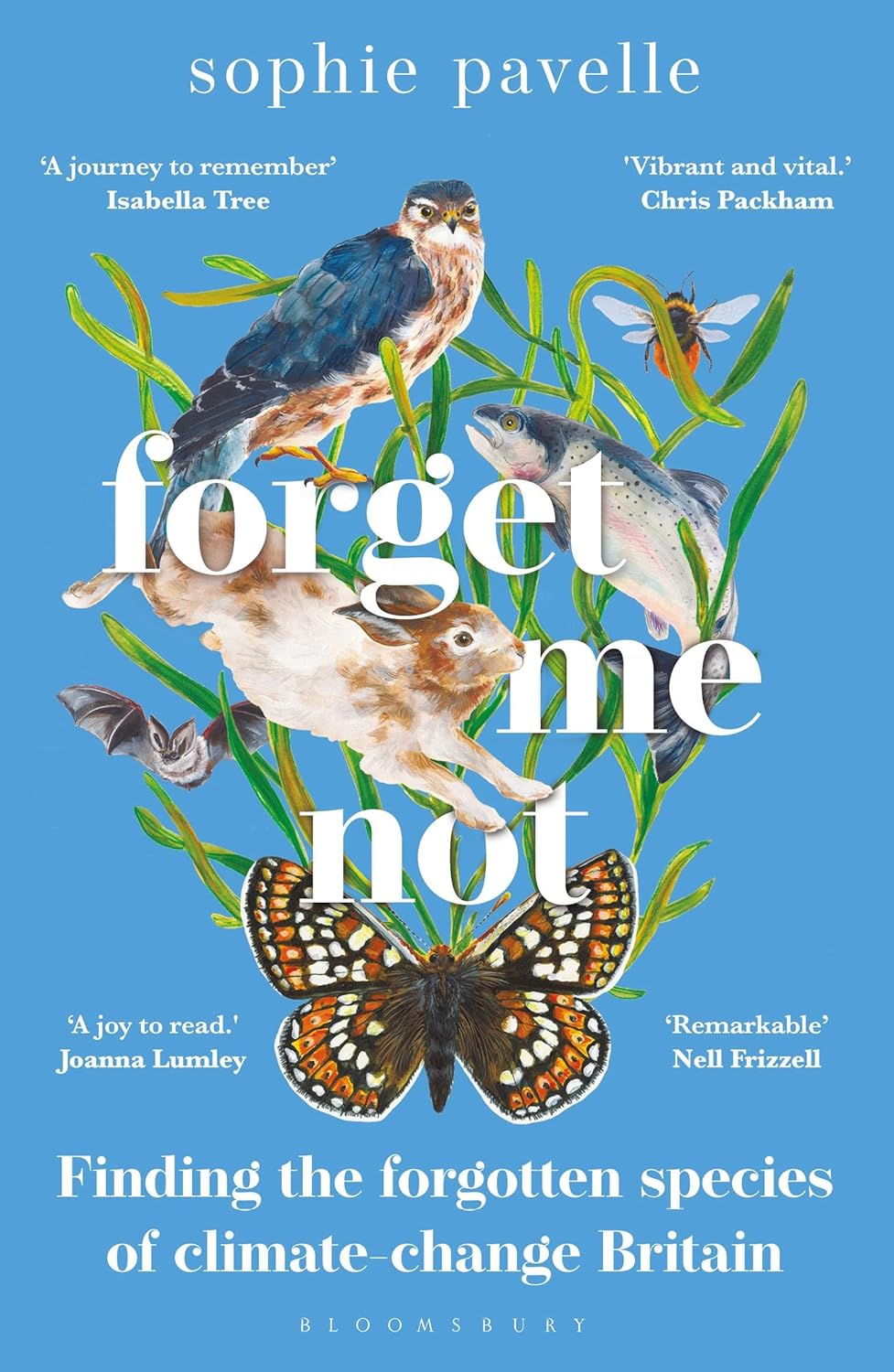Forget Me Not
- Forget Me Not by Sophie Pavelle (Bloomsbury, 2023).
- 352 pages, 10 black-and-white illustrations.
- ISBN 9781472986238. Hbk, £10.99.
- Buy at BirdGuides bookshop from £9.99
This book takes a look at the climate and biodiversity crises through the lens of 10 UK species that are being affected. It takes first-time author Sophie Pavelle on a low-carbon journey around the country as she seeks to encounter each of the 10.
The chosen species are an eclectic mix, including beetles, bats, grasses and fish, among others. Two bird species are represented: Black Guillemot and Merlin. Using a combination of train, bike, foot and the occasional hire car or lift, Pavelle heads to known hot-spots for each species, meeting up with experts along the way.
As she attempts to see each one, the conservationists she speaks to explain the different and, more often, interconnected threats facing the plants and animals featured. There are a lot. These species – like so many others – are facing a plethora of problems – most of them human induced.
It would be easy to get downhearted here, but this isn't a hopeless book. One of the overriding messages is that nature is pretty hardy and left to itself it'll do all right, thank you very much. The quote that "Atlantic Salmon don't need to be managed. They are incredibly adaptable if left alone" can very much be applied to many other species.
But we have to act now – or more accurately maybe, stop acting in certain ways now. This is true of the species featured here as well as the tens of thousands of others around the world whose continued existence is in question.
Forget Me Not is as much a personal journey as an actual journey to see the 10 highlighted species. At one point Pavelle describes her 10 species as the book's "main characters"; in truth it's as much about her as about them.
This isn't a style that works for me. I do wonder who the book is aimed at. A footnote explaining that Eurasian Hobby is "Not, as you first might think, knitting, cycling, gaming or baking. But rather, another small and exciting British falcon" would suggest it's not those who already have some knowledge of the natural world.
The book is also stuffed with humour that didn't work for me (Linnaeus is described as "Bit of a legend, TBH" in another footnote). Metaphors are often not just mixed but downright confusing.
However, this is down to personal taste, and there is a lot of information here. It's energetically written and Pavelle pursues her target species with enthusiasm and determination.


